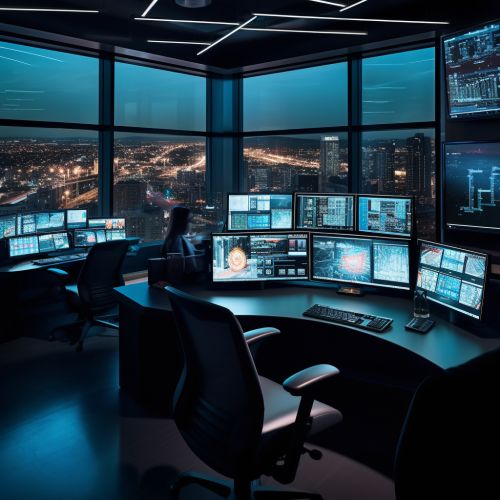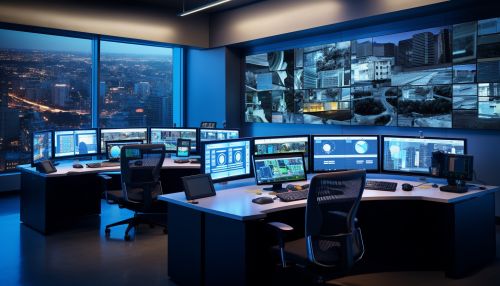Control System Types
Introduction
A control system is a system of devices or set of devices, that manages, commands, directs or regulates the behavior of other devices or systems to achieve a desired state. Control systems are pivotal in many industries and sectors, including aviation, manufacturing, and power generation, among others. They are used to maintain desired levels of variables such as temperature, pressure, flow, or speed within a desired range. Control systems can be broadly classified into two types: open-loop control systems and closed-loop control systems.


Open-Loop Control Systems
An open-loop control system is a type of control system in which the output is neither measured nor fed back for comparison with the input. The control action in an open-loop system is independent of the output. This means that the system does not have the ability to adjust itself to changes in the operating environment or process conditions.
Characteristics of Open-Loop Control Systems
Open-loop control systems have the following characteristics:
- They are simple in construction and design.
- They are generally stable as they do not have the tendency to oscillate.
- They are convenient to use when the system's transfer function is known, and the input and disturbance are constant or predictable.
- They are economical to build and maintain.
- They are not accurate and reliable for all time because they do not automatically correct any errors or disturbances in the output.
Closed-Loop Control Systems
A closed-loop control system is a type of control system in which the control action is dependent on the desired output. The actual system output is compared with the desired output, and the difference between the actual and desired outputs (the error) is fed back to the controller for adjustment. This feedback loop allows the system to adjust its output in response to changes in the operating environment or process conditions.
Characteristics of Closed-Loop Control Systems
Closed-loop control systems have the following characteristics:
- They are more complex in construction and design than open-loop systems.
- They are generally more accurate than open-loop systems as they can compensate for disturbances and changes in the system parameters.
- They may become unstable if not properly designed and tuned.
- They require more maintenance than open-loop systems due to the complexity of the feedback loop.
- They have the ability to reject disturbances and maintain the system's stability.
Comparison of Open-Loop and Closed-Loop Control Systems
While both open-loop and closed-loop control systems have their advantages and disadvantages, the choice between the two depends on the requirements of the specific application. Open-loop systems are generally simpler and more cost-effective, but they lack the ability to adjust to changes in the environment and are not as accurate as closed-loop systems. On the other hand, closed-loop systems offer greater accuracy and the ability to compensate for disturbances, but they are more complex and require more maintenance.
Applications of Control Systems
Control systems find applications in a wide range of fields. Here are a few examples:
- In the automotive industry, control systems are used in the design of cruise control systems, anti-lock braking systems, and car navigation systems.
- In the aviation industry, control systems are used in the design of flight control systems, autopilot systems, and air traffic control systems.
- In the power generation industry, control systems are used in the design of power plant control systems, turbine control systems, and grid control systems.
- In the manufacturing industry, control systems are used in the design of assembly line control systems, quality control systems, and inventory control systems.
